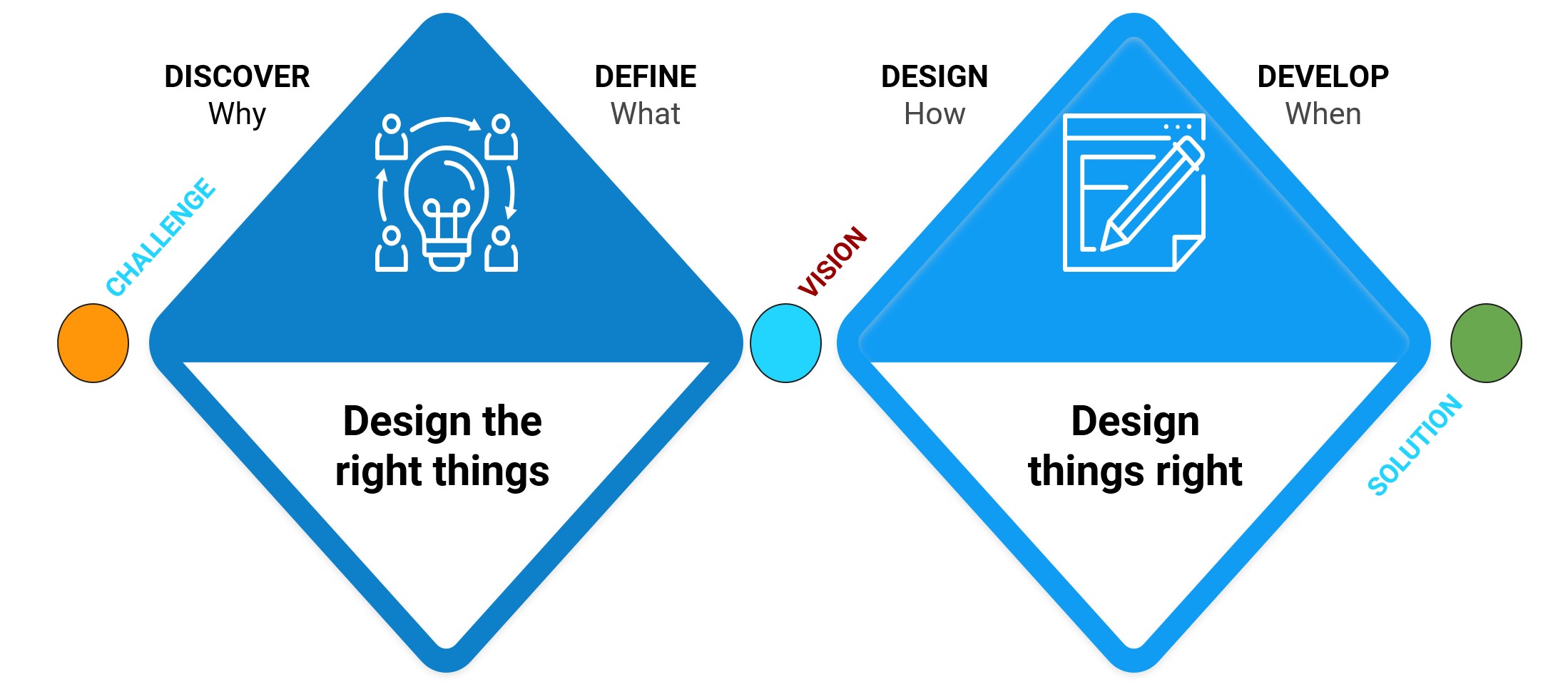Important: The GCConnex decommission will not affect GCCollab or GCWiki. Thank you and happy collaborating!
Difference between revisions of "Design Thinking Workshop"
| Line 16: | Line 16: | ||
=== WORKSHOP SUMMARY AND FINDINGS === | === WORKSHOP SUMMARY AND FINDINGS === | ||
| + | The findings from the 7 sessions were consolidated and are available in PowerPoint format [https://022gc.sharepoint.com/:p:/s/ROEB-POD-TransformationOffice/EboSJoUmYQlPhQoAc_LdP58BffmllqGWVzv85gGYuVnD1Q?e=DQx4kp here] | ||
===HOSTING A DESIGN THINKING WORKSHOP=== | ===HOSTING A DESIGN THINKING WORKSHOP=== | ||
| − | Instructions for building and hosting a design thinking workshop are available in | + | Instructions for building and hosting a design thinking workshop are available in PowerPoint format [https://022gc.sharepoint.com/:p:/s/ROEB-POD-TransformationOffice/EXfGR_ADnoJOqiSPYR326iIBWN8LPtm0KHIyhQqXeAR-QA?e=XW6lC2 here] |
Revision as of 08:47, 9 August 2021
INTRODUCTION
Context
The ROEB Transformation Office of Health Canada held a series of Transformation by Design workshops in June 2021 for the directorates of the ROEB, focused on applying Design Thinking across the board. The consulting firm Jumping Elephants was approached in April 2021 to design and run the workshops. The sessions had the goal of introducing Health Canada employees to the methodology of design thinking and then apply to to current issues in their daily work. Participants were asked to generate issues and solutions first individually and then within increasingly larger groups up to the complete assembly of employees. In total, 7 sessions were ran with over 100 participants generating 441 problems and 303 solutions.
What is Design Thinking?
As per Jumping Elephants, design thinking may be defined as "an iterative process in which we seek to understand the user, challenge assumptions, and redefine problems in an attempt to identify alternative strategies and solutions that might not be instantly apparent with our initial level of understanding. At the same time, Design Thinking provides a solution-based approach to solving problems." It takes a human-centered approach to designing products and services, as opposed to a system-centered approach, meaning the focus is on understanding the users and their context, and not on what is easy and efficient to build on current infrastructure.
Design thinking approaches to development can include 3-7 phases, but the one we were recommended and utilized included the following 4 "D's":
- Discover - Backed by research or working with users, we use divergent thinking to explore why something is a problem.
- Define - Convergent thinking focuses on finding a shared vision of what the problem is.
- Design - Divergent thinking is used to explore ways to solve the problem.
- Deliver - Convergent thinking refines and then delivers the solution.
These two pairs of divergent and convergent thinking can be visualized as a "double diamond" of creating and refining ideas.
WORKSHOP SUMMARY AND FINDINGS
The findings from the 7 sessions were consolidated and are available in PowerPoint format here
HOSTING A DESIGN THINKING WORKSHOP
Instructions for building and hosting a design thinking workshop are available in PowerPoint format here

